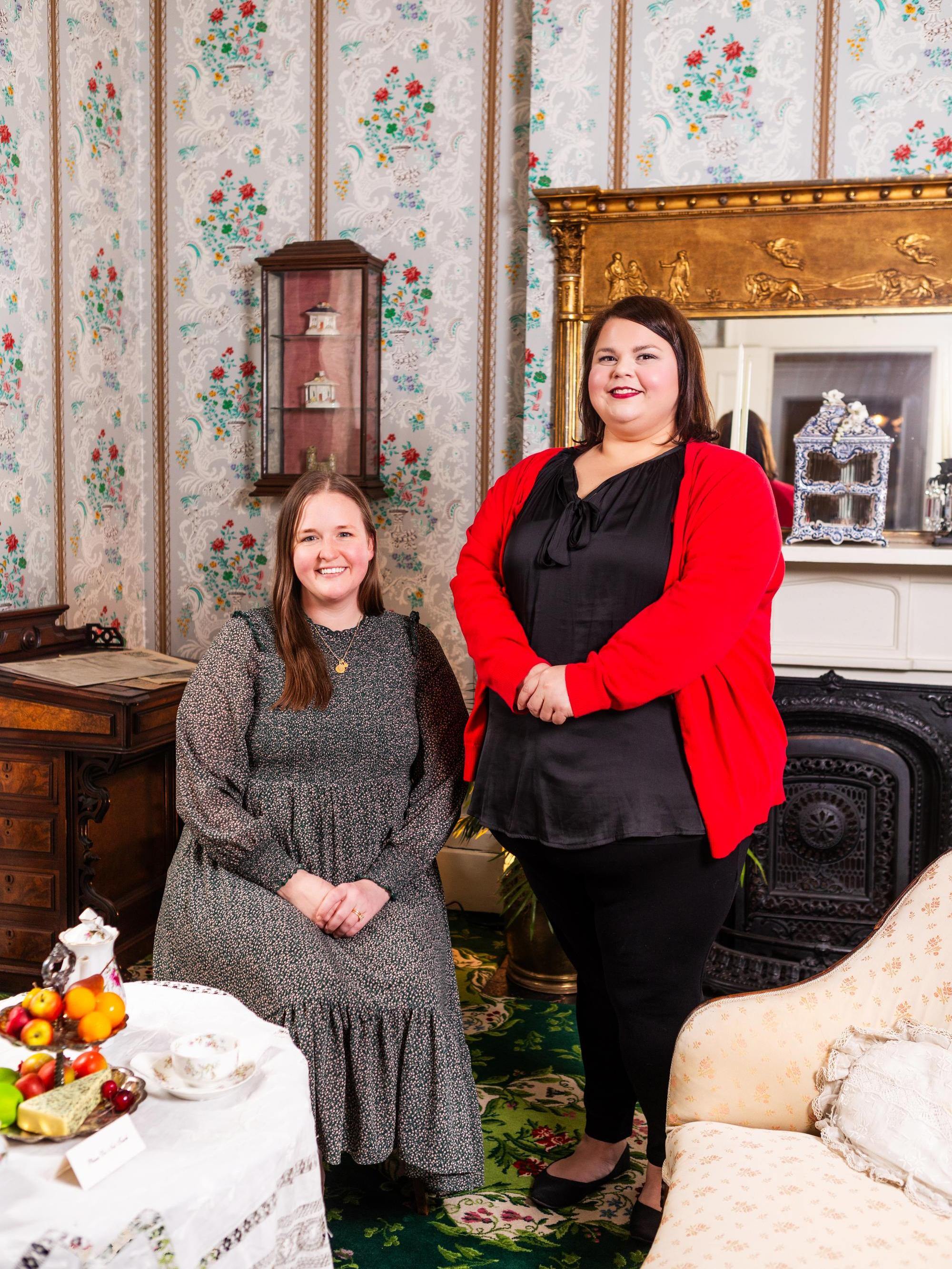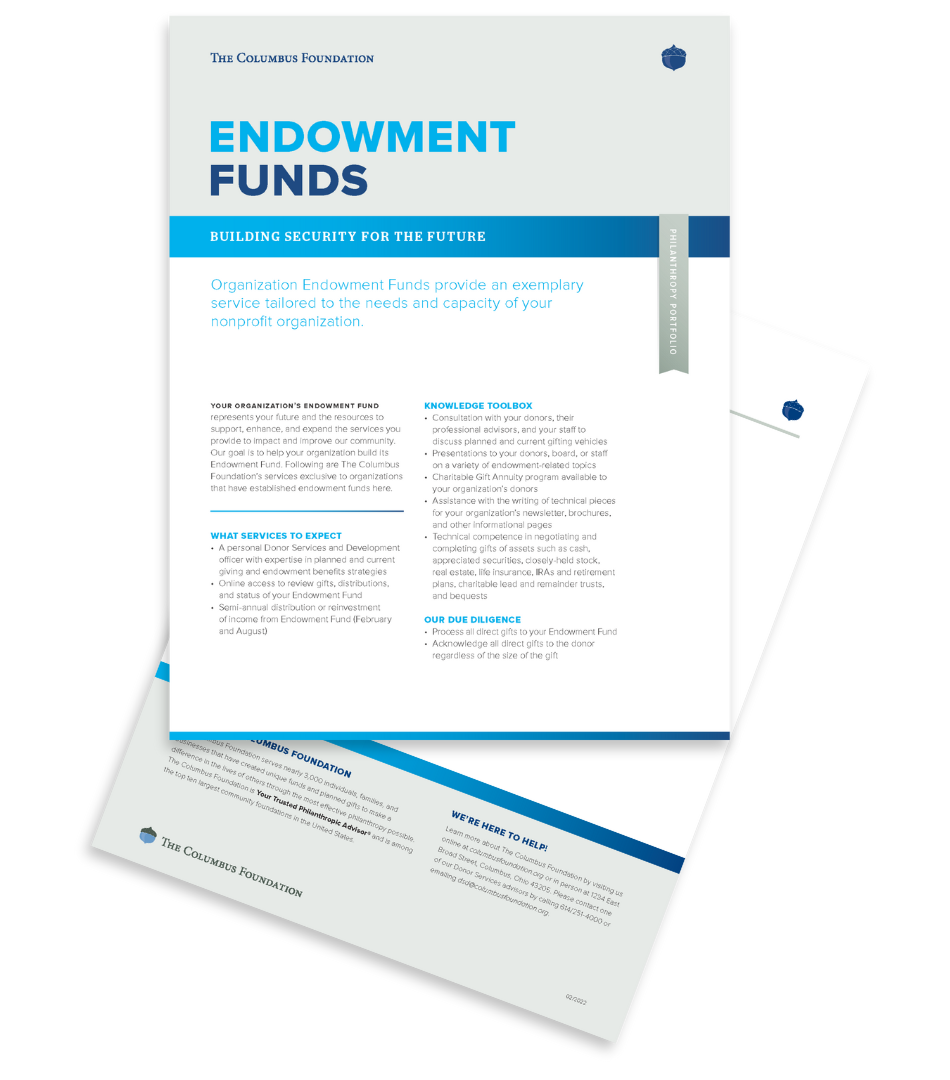When the Junior League of Columbus was established on February 1, 1923, by a passionate group of women determined to make a difference in the community, women had only recently earned the right to vote.
The Equal Rights Amendment had not yet been introduced in the United States Congress, and opportunities for women to participate in civic affairs were limited. The Junior League of Columbus, however, provided women a place to develop their leadership, participate in acts of service, and engage in issues affecting the community.
Although much has changed over the past century, the Junior League of Columbus remains committed to advancing women’s leadership through training, volunteer action, and collaboration. As the local affiliate of the Association of Junior Leagues International—a nonprofit organization whose past members include former First Ladies, a U.S. Supreme Court Justice, engineers, scientists, and many other remarkable women—the Junior League of Columbus has helped thousands of women become civically-minded leaders who create lasting change throughout the region.
“A critical piece of our mission is developing women who do a world of good,” explained Rochelle Toth, President of the Junior League of Columbus. “We believe in fostering the transformative power of women’s leadership to meaningfully impact the community.”

PICTURED: Kristina Ellis, President-Elect of the Junior League of Columbus, and Rochelle Toth, President of the Junior League of Columbus, at the Kelton House Museum & Garden.
Throughout the organization’s history, its members have devoted their time, talent, and resources toward supporting initiatives that benefit the Columbus community. In partnership with local nonprofits and agencies, these projects have included providing school supplies to low-income students, expanding opportunities for youth to engage in the arts, launching initiatives to preserve and teach local history, and more. Currently, the Junior League of Columbus’ signature project—Bridging the G.A.P. (Guide. Advocate. Provide.)— focuses on supporting youth who are aging out of the foster care system.
Toth shared that projects are researched and voted on by the organization’s members. “It’s really important for our membership to have buy-in and be passionate about the projects that we’re doing. That’s how we can make the biggest impact.”
With deep roots in the community, the Junior League of Columbus has worked alongside The Columbus Foundation for many years. The organization was among the first nonprofits to create an Organization Endowment Fund at The Columbus Foundation, establishing the Junior League Fund in 1957.
As Kristina Ellis, President-Elect of the Junior League of Columbus, explained, the endowment helps further the organization’s mission by providing funds for special projects, training opportunities for members, and operational support. Through the fund, the Junior League of Columbus also offers mini-grants to local nonprofits. “We provide funds for local organizations to execute projects that support the Junior League’s mission and the community,” Ellis said.
Nearly two decades after the Junior League of Columbus established the Junior League Fund, the organization once again worked closely with The Columbus Foundation on a unique project—the restoration of the Kelton House on East Town Street. Once home to Grace Kelton, a prominent interior decorator, the Kelton House was built by Grace’s grandfather, Fernando Cortez Kelton, in 1852 and served as a stop on the Underground Railroad. Upon her death in 1975, Grace left the Kelton House to The Columbus Foundation in the hope that it would be maintained as an educational museum.
The Columbus Foundation is home to hundreds of Organization Endowment Funds, which help nonprofits set aside funds for specific programming, prepare for planned growth, build an investment strategy, or provide security for unforeseen obstacles. By protecting the capital of an organization, Organization Endowment Funds demonstrate long-term financial planning and provide a relatively steady source of income.
 |
The Junior League of Columbus agreed to lease the Victorian Era house and surrounding grounds from The Columbus Foundation, and continues to maintain the Kelton House Museum & Garden today. True to Grace’s wishes, the Kelton House Museum & Garden offers tours and educational opportunities to the public. In 2000, the Junior League of Columbus established the Junior League Kelton House Fund, another Organization Endowment Fund at The Columbus Foundation, to support the preservation and operation of the Kelton family’s former home. Several Columbus Foundation donors have also established Designated Funds to benefit the Kelton House Museum & Garden.
In 2023, the Junior League of Columbus celebrated its 100th anniversary with a special Centennial Campaign designed to honor the organization’s history and secure its future. With a focus on supporting membership development, sustaining community initiatives, preserving the Kelton House, and growing the organization’s endowment, the Centennial Campaign raised more than $600,000 through the generosity of many donors.
Now that the centennial celebrations have concluded, Toth said the Junior League of Columbus is focused on enhancing its partnerships with local nonprofits and welcoming more women into the organization to maximize its impact.
“The Junior League is a great place for women to develop personally and professionally, as well as to give back to the community,” said Toth. “We’re setting women up to be successful leaders who can go on to have an even larger and greater impact in the community.”